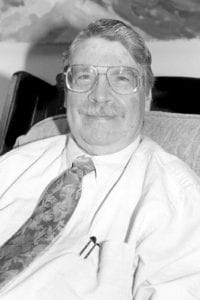Life Lines: The young, the old and science

By Elof Axel Carlson
When I’ve gone to a performance of La Bohême or Les Misérables I see a common theme that is not only European but may be universal. The young express their disappointment of the world in which they are raised and seek change by revolution and protest. The old see the world as manageable, despite its failings, and feel threatened by the discontents of youths who will destroy a way life as they know it. For the young, the privilege, bigotry, inequality, and neglect are considered wrongs that need correcting. For the old, the new brings to mind authoritarian rule by mobs and dictators. Where does science fit into that conflict?
Scientists like to claim a neutrality in what they do as scientists. For those in basic science they are not motivated by political and private usage of their findings. Their quest is adding new knowledge of our perception of the universe. How it is used is the job of everyone.
We do not blame a scientist who invents a pocket watch if that watch is used in a bomb to assassinate a nation’s leader. But applied science is different. If a scientist is hired to design an intercontinental missile to deliver a hydrogen bomb that will decimate a city thousands of miles away, that scientist is very much aware of the potential use of that weapon in war and rationalizes that he or she is just making a deterrent necessary for peace.
It becomes harder to make such a rationalization if the scientist is hired to design a gas chamber designed as a public shower to kill 20 people at a time with cyanide gas pouring into that sealed chamber. It then becomes a war crime if the side using those gas chambers loses the war. The only plausible defense for the scientist is to claim he or she was forced under possible threat of death to design the chamber.
Science provides the tools and findings of basic science and applies them to society. Both protestors and those protecting private property as police or militia may use the same shields and weapons in their confrontations. What distinguishes them in their acts are the values they accept.
In general, the young are more likely to be among the protesters, the adults who have learned to live the contradictions of society will tend to be older and supported most vigorously by the older members of society who accept their privileges without a sense of guilt.
I am a liberal (in the sense of the tradition of Franklin Roosevelt and the Democratic Party through most of the 20th and 21st century). I do not consider those provisions of the government as identical to totalitarian socialist states and more than Republicans consider their support of capitalist inequality as identical to such right wing totalitarian governments under Mussolini, Peron, Franco, Trujillo, or other anti-socialist and anti-Communist outlooks.
Not all concern over science is based on politics. There are disagreements among scientists on issues such as the contributions of natural and synthetic gases to world climate changes or the rising levels of ocean water. There is disagreement on the exposure or individuals of populations from low doses of ionizing radiation. There is disagreement on the carrying capacity of land for increases in the human population (each person needs food, shelter, health, and work to sustain a family).
Unfortunately, science literacy is not good for most of the world’s population and politics rather than scientific evidence is more likely to dominate the debates on these issues which are highly dependent on how science is used or abused.
Elof Axel Carlson is a distinguished teaching professor emeritus in the Department of Biochemistry and Cell Biology at Stony Brook University.







